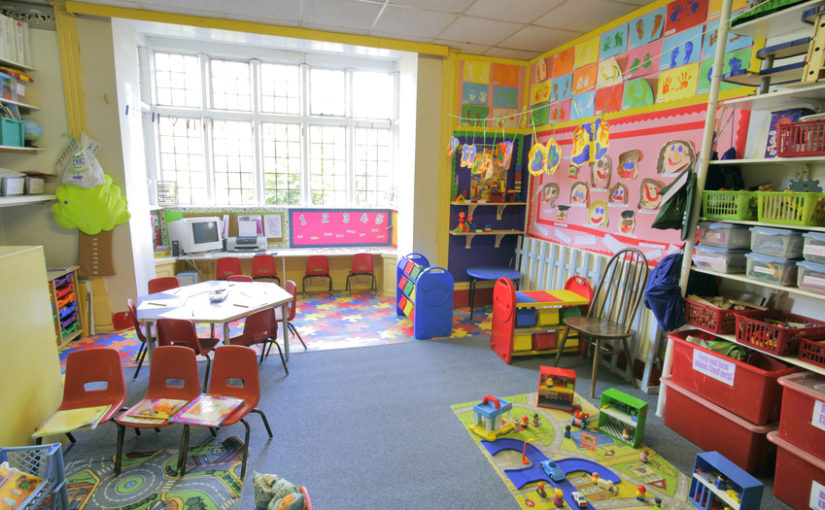Many parents would love nothing more than to completely devote themselves to taking care of their children. However, work situations, other obligations, and even the needs of the children themselves may call for assistance from outside sources. Around 67% of full-time or part-time working mothers enrolled their children in center-based childcare in 2012, so this is a decision that many families are familiar with. If you’re unsure as to which type of childcare situation will be best for your family, we’re here to help.
For many families, the question of preschool vs daycare is at the top of their list. What exactly are the differences between these two types of care? Is one inherently better than the other? And what can you expect when enrolling your child? In today’s post, we’ll discuss the main differences between preschool programs and daycare centers to shed some light on which facility will benefit your child most.
Preschool Vs Daycare: Key Differences
The hours
One factor that will likely play into your decision — particularly if you (and your spouse, if applicable) work outside the home — is the operating hours of each type of facility. Generally, daycare centers are open for longer stretches of time during the day. They also remain open during holidays and summer vacation. They may even be able to accommodate later hours on a daily basis. Most preschools have shorter class sessions, though some do offer extended hours or summertime care. It really depends on the individual facility. The focus of each type of facility is different (which we’ll talk about a little later), so their priorities differ; while daycares focus on accommodating parents’ schedules, preschools tend to stick to specific operating hours for the sake of both students and teachers.
The staff
Another big difference between preschools and daycare centers is the staff you’ll find there. While there are plenty of kind and compassionate employees at daycare facilities, many are not formally or extensively trained in childcare or in early childhood education. Some may be, but others may be hired simply because they’re good with children. That’s not always a bad thing — after all, you probably wouldn’t turn down a babysitting hire because they didn’t have a degree in childhood education. There’s a lot of variety out there. In contrast, preschools usually employ teachers who have some kind of background in early childhood education. Instead of being supervised by someone who can really fill only a nannying role, your child will be watched and taught by those with experience in this field.
The purpose
If you’re weighing your options between preschool vs daycare, it’s essential to consider the two distinct purposes of these facilities. Daycares are meant to provide supervision and some (hopefully) stimulation for the children. Preschools are meant to provide both of those things and an educational introduction. Although some daycare centers will prioritize educational activities, it’s by no means a requirement. The focus of preschool teachers is to help young students develop their skills.
The requirements
Parents should note that there are often very different requirements for preschool than there are for daycare. Daycare facilities will accept children from a very young age. Most facilities will be happy to enroll your toddler and will care for them until they enter elementary school. Some daycare centers will even accept very young infants. That can be a plus for parents who require assistance right away. The requirements for preschool centers are typically more rigid, as most accept students between three and five years of age and often require that they are potty-trained. Again, it depends on the facility — which is why parents must conduct careful research before making a final decision.
In the preschool vs daycare debate, there isn’t a one-size-fits-all decision. What works best for your family may not be the choice your neighbor makes for theirs. However, in order to make an informed choice about childcare, it’s essential to understand the differences between your options and determine your own priorities in caring for and educating your children.



